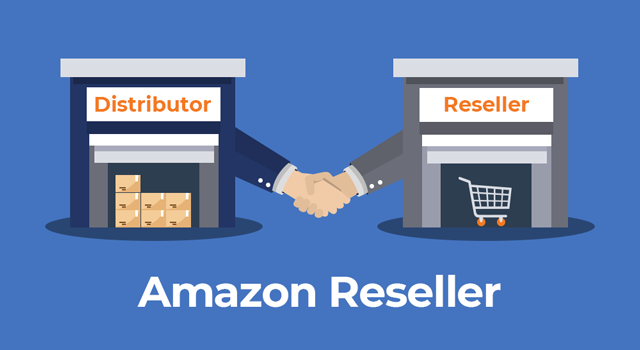
Maintaining a strong brand presence on Amazon can be both an opportunity and a challenge, especially when you rely on resellers to help distribute your products. Resellers can expand your reach and boost sales, but if not managed carefully, they can also jeopardize your brand’s integrity. This article will explore how to effectively manage reseller relationships to protect your brand on Amazon, ensuring consistent representation and long-term growth.
Understanding the Role of Resellers on Amazon
Resellers are third-party sellers who purchase your products, often at wholesale prices, and list them on Amazon under your brand name. While they offer the advantage of broadening your sales channels, there are potential risks to consider:

- Inconsistent Pricing: When multiple resellers list your products, price wars may occur, which can undercut the perceived value of your brand.
- Unauthorized Sellers: Some resellers may list your products without your permission, leading to quality control issues and counterfeit risks.
- Inconsistent Listings: Resellers may not adhere to your brand guidelines for images, descriptions, and packaging, which can hurt your brand’s reputation.
Effectively managing reseller relationships is essential to maintaining control over how your brand is represented on Amazon. Let’s dive into some practical strategies to maintain brand integrity while leveraging reseller relationships.
Strategies for Managing Reseller Relationships
- Set Clear Guidelines and Contracts
One of the most critical steps in managing resellers is establishing clear guidelines. Set clear terms and conditions for how your products should be marketed and sold on Amazon. This includes:
- Pricing controls: Enforce Minimum Advertised Price (MAP) policies to prevent price undercutting and maintain a consistent brand image.
- Content standards: Provide your resellers with pre-approved product listings, including descriptions, images, and keywords. This ensures brand consistency across all product listings.
- Sales territories: If applicable, define the geographic areas where each reseller is allowed to operate. This can prevent overlap and minimize competition between your resellers.

2. Use Amazon’s Brand Registry
Enrolling in Amazon’s Brand Registry is essential for protecting your brand on the platform. Brand Registry helps you take control of your product listings, ensuring only authorized sellers can represent your brand. Key benefits include:
- Increased control over content: You can directly update your product pages to reflect accurate information, regardless of what resellers have listed.
- Monitoring unauthorized sellers: Brand Registry provides tools to monitor and report unauthorized sellers who may be selling counterfeit or low-quality versions of your products.
- Access to A+ Content: Brand Registry allows you to create A+ Content, which enhances your product listings with premium features like enhanced images, comparison charts, and detailed descriptions that help differentiate your products from competitors.
3. Monitor Reseller Performance
Regularly monitoring how your resellers are performing is critical to maintaining brand integrity. Tools like Amazon Seller Central and third-party software can help you track how your resellers are pricing and representing your products. Key metrics to monitor include:
- Pricing compliance: Ensure resellers are adhering to your MAP policy and not devaluing your brand through aggressive discounting.
- Product quality and reviews: Monitor customer feedback and reviews related to your products. If a reseller is providing poor customer service or distributing damaged products, it can harm your brand reputation.
- Content accuracy: Check that your product listings are consistent with your brand standards, especially when resellers create their own product pages.
Building Long-Term Reseller Relationships
To foster long-term success and maintain brand integrity, it’s essential to build strong, mutually beneficial relationships with your resellers. Here are some tips for creating productive partnerships:
- Offer Exclusive Perks: Provide incentives for resellers who consistently follow your guidelines and perform well, such as exclusive access to new products or marketing support.
- Communicate Regularly: Keep an open line of communication with your resellers. Offer training on new products, updates on brand standards, and ongoing support to help them succeed.
- Reward Compliance: Reward resellers who comply with your MAP policies, maintain positive customer feedback, and represent your brand well. Consider offering them priority stock or lower wholesale prices as an incentive for maintaining high standards.

Conclusion
Managing reseller relationships on Amazon requires clear guidelines, constant monitoring, and strategic use of tools like Amazon’s Brand Registry. By setting up solid reseller agreements, maintaining consistent brand messaging, and using Amazon’s resources to your advantage, you can build a strong foundation for long-term success on the platform. Protecting your brand integrity while leveraging the power of resellers will help you grow your business while maintaining control over how your brand is presented.
By taking a proactive approach to reseller management, you can ensure that your brand remains strong, your customers receive the best experience possible, and your products are well-represented in the marketplace.














